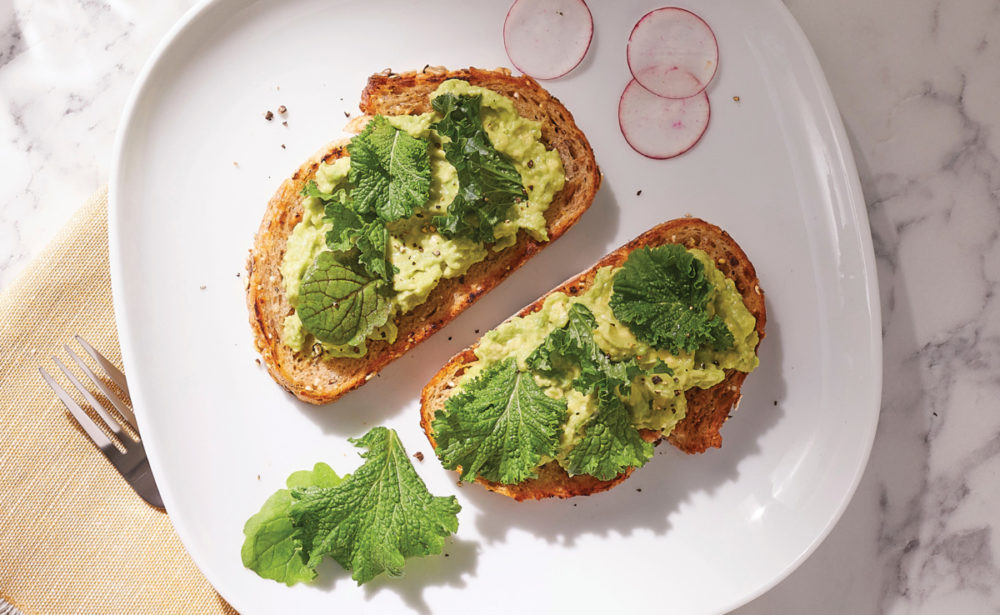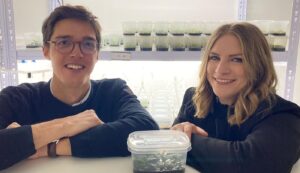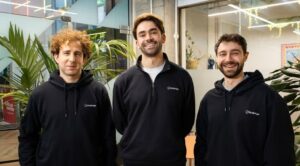Apples that don’t brown. Lettuce that never wilts. Strawberries that burst with flavor.
Gene editing, it is hoped, could turn all of these appealing notions into realities.
Durham, North Carolina-based Pairwise is aiming to be among the first to commercialize gene-edited crops like these for human consumption starting in 2022.
“Only about 10% of Americans eat the recommended amount of fruits and vegetables, and 5% are vegetarian, so if you do the math most of us are not eating what we should,” CEO Tom Adams told AFN.
“There isn’t as much innovation in the produce space as there is in the unhealthy snack space. That’s the mission we’ve taken on.”
The startup recently announced a $90 million Series B funding led by Pontifax AgTech and existing healthcare-focused investor Deerfield. Singapore’s Temasek also joined the round along with Leaps by Bayer.
This follows a $25 million Series A round in March 2018 that was focused on developing Pairwise’s gene editing platform and initial product portfolio. It also allowed the startup to commence a $100 million collaboration with Bayer‘s Crop Science division to explore gene editing tools for corn, soybeans, wheat, canola, and cotton.
Pairwise uses CRISPR technology to advance new versions of produce that overcome existing challenges like flavor consistency, shelf-life, and seasonal availability. Its technology is licensed from a number of leading research organizations like Massachusetts General Hospital and the Broad Institute of MIT and Harvard University.
Leaps by Bayer on how it’s adopting an impact lens for corporate venturing – read more here
The new funding will be used to catapult Pairwise towards commercialization of its first product: a new type of leafy green.
“It has the nutrition qualities of some of the leafy greens that people eat less of, like kale, but has the eating qualities of things that people eat more of – like romaine. We expect it to be something that consumers will like as an option in the salad aisle,” Adams said.
Beyond that, Pairwise is already working on ‘new’ versions of blackberries, raspberries, and other cane fruits.
“We’ll be launching a blackberry that basically has really good tasting qualities, is produced year-round with pretty good yields, and we got rid of the thorns for the growers and the seeds for the consumers,” Adams said.
“Some of the funding will go towards a longer-term project we are doing to get rid of the pits in cherries.”
Pairwise co-founder and chief business officer Haven Baker will be talking about reducing these kinds of barriers to wider fresh food consumption at next month’s Future Food-Tech virtual summit.
The pace of progress
So far, only a few gene edited crops have made it close to the commercialization finish line. In 2019, Minnesotan gene editing startup Calyxt became the first to commercially debut a gene-edited food: soybean oil with improved health benefits, according to the company. It raised $64 million when it went public in July 2017.
According to Adams, the timeline is right on track considering when CRISPR first hit the scene.
“CRISPR is eight years old now. A few years of that time was spent developing tools,” he said.
“We formed the company just three years ago and we have a product that is ready to be launched in a year-and-a-half. So that’s pretty fast when you consider you’re working with biological systems.”
Social license remains an unresolved variable. One of the biggest criticisms of the GMO movement is its apparent failure to have an open discourse with consumers about how the technology works, its purported benefits, and potential safety risks. Consumer skepticism over GMO foods in the US led to a multi-year legal battle culminating in a federal bill requiring label disclosures on foods containing GMO ingredients.
Pontifax AgTech closes latest fund at $302 million – read more here
A number of jurisdictions — including Germany, Italy, and the UK’s Scotland — have banned GMOs altogether. But others appear to be softening their previously strict line.
“France is starting to reconsider its stance on GMO and gene editing [and] we’ve seen other countries like Japan and Australia start to understand the power and the importance of this technology,” Ben Belldegrun, founder and managing partner at Pairwise investor Pontifax AgTech, told AFN.
“We believe we are at an inflection point both for consumers and regulatory bodies.”
Covid-19 could also be opening some consumers’ eyes to the potentially positive role that biotech can play in multiple facets of our lives. As more consumers get the vaccine and enjoy the opportunity to return to nearly-normal activity levels, they may be less quick to assume that technology always has an ulterior motive, Belldegrun suggested.
“Science is a household thought today. We believe that’s breaking down a barrier people have around science not being able to improve food and only improving health,” he said. “Today’s world is educating people that science can improve many things for the consumer’s benefit.”





